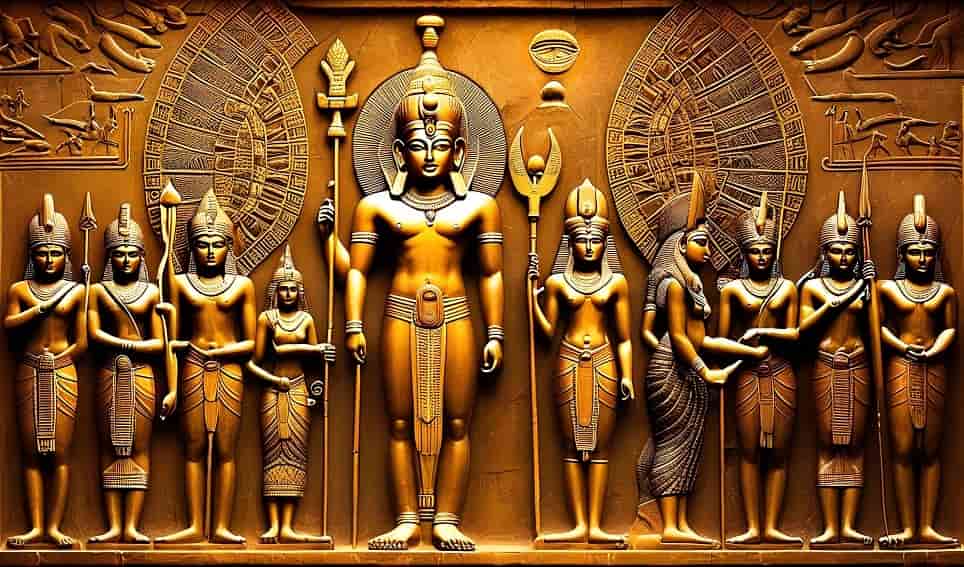Delving into the enigmatic realm of the Anunnaki, one cannot help but ponder their true essence. The Anunnaki are a group of deities or divine beings mentioned in ancient Mesopotamian cultures, particularly in Sumerian mythology. Unveiling their mystique across the annals of ancient Sumerians, Akkadians, Assyrians, and Babylonians, the Anunnaki stand as a divine ensemble. These deities, intricately interwoven into the religious fabric of these civilizations, cast their celestial influence over the collective consciousness of bygone eras.
The concept of the Anunnaki is most prominently found in the Sumerian creation myth, the Enuma Elish, where they are said to be the descendants of An (Anu) and Ki, the god of the heavens and the goddess of Earth, respectively. According to the myth, the Anunnaki played a key role in the creation of humanity.
Originating from the root "Anu," signifying the chief deity of the celestial expanse, "Anunnaki" intriguingly translates to "the offspring of Anu" or, alternatively, "Those who descended from the heavens." These beings were considered powerful and were associated with various aspects of life, including creation, fertility, and the establishment of societal order.
The Anunnaki Pantheon revolves around the commanding presence of Anu, accompanied by his two progenies, the half-siblings Enlil and Enki. Anu, holding the pinnacle as the supreme God and ruler of the Anunnaki, was believed to dwell in the heavens, orchestrating the endeavors of the divine cohort.
Enlil, assuming the divine mantle of the God of air and storms, emerged as the firstborn son of Anu and, by birthright, the Earthly executor of his father's divine decrees. In essence, Enlil stands as the primary sovereign over the planet, enforcing the celestial will upon its domain. On the other celestial spectrum, Enki, Anu's second son, ascended as the God of knowledge, wisdom, and creation—a divine triumvirate embodying the very essence of intellectual and creative prowess.
Some alternative theories and fringe beliefs propose that the Anunnaki were extraterrestrial beings who visited or influenced Earth in ancient times. These theories often suggest that the Anunnaki possessed advanced knowledge and technology that they shared with human civilizations, leading to advancements in various fields.
However, it's crucial to approach such interpretations with a critical mindset. Mainstream scholars generally view the Anunnaki as mythological figures within the cultural and religious context of ancient Mesopotamia. Claims about their extraterrestrial origins and involvement in Earth's development are not supported by credible archaeological or historical evidence.














0 comments:
Post a Comment